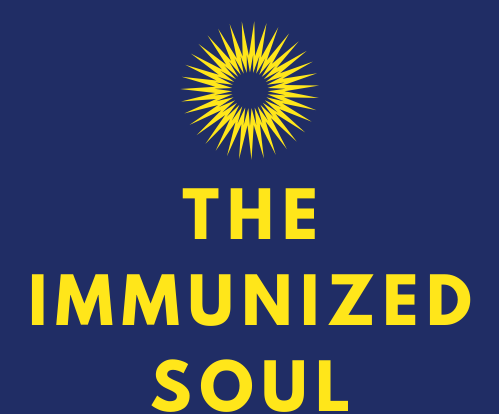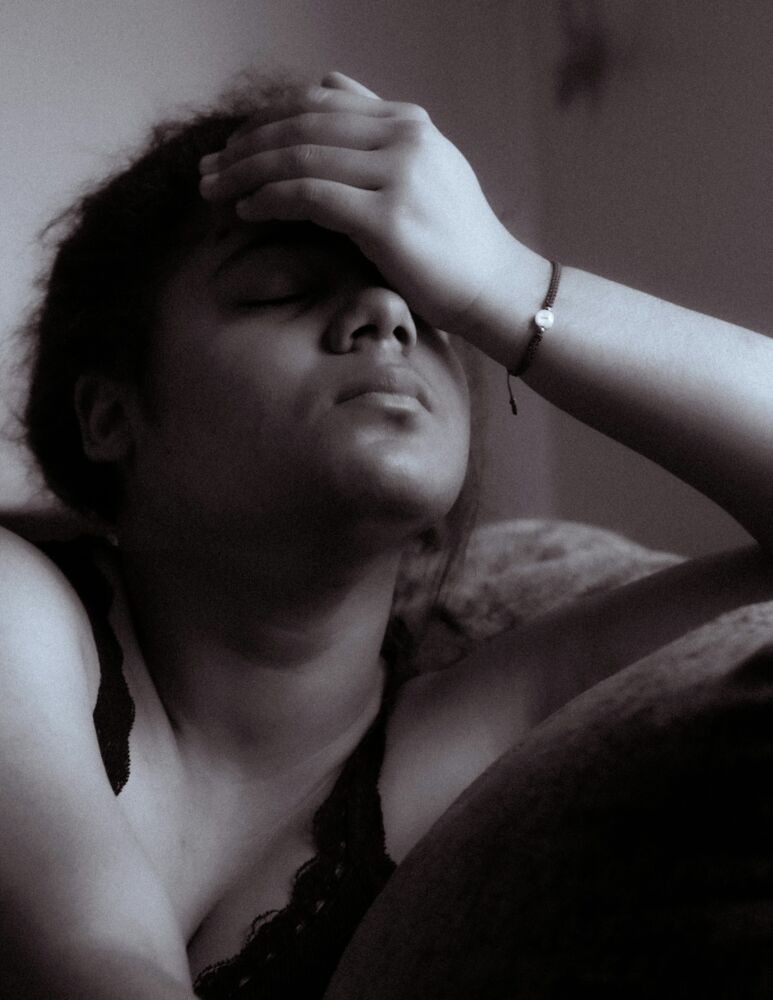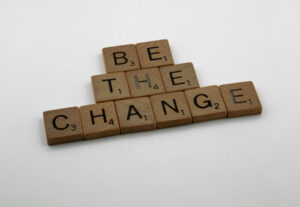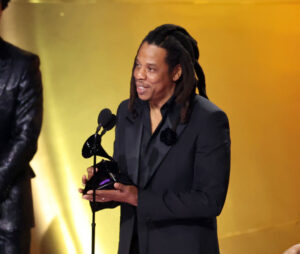Why Complaints About “Racism” or “Oppression” Will Never End
This story starts the moment I set foot in this country.
I learned English by soaking up the culture, and the dawn of hip-hop music in the early 80s was at the heart of it.
In many ways, hip-hop was my first love when I adjusted to my new surroundings.
The classic track by Common, “I Used to Love Her,” perfectly embodies what became my love-hate relationship with the music genre.
The song uses the metaphor of a woman to represent hip-hop itself, reflecting on how the genre changed for the worse over time and expressing nostalgia for its earlier, more substantive style.
At one point, the lyrics exclaim:
“And on some dumb sh—, when she comes to the city, Talkin about poppin’ glocks, serving rocks, and hittin’ switches, Now she’s a gangsta rollin with gangsta b—s, Always smokin’ blunts and getting drunk, Tellin’ me sad stories…”
And that is the genesis of my encounter with “black fatigue.”
The increasing “sad stories” in the music of dysfunctional behavior and police defiance. The borderline pornographic and heightened tribalistic themes.
By 2000, I was fully fatigued by the hip-hop scene. This is why I laughed and entirely related to the latest incarnation of this “fatigue” phenomenon.
What is “Black Fatigue” Really?
At first, “black fatigue” was just another way of saying, “black people are tired of being mistreated.” Lately, however, the term has taken on a new twist.
Now, it’s not just about those who experience injustice—it’s also about anyone who feels worn out by the constant talk of racism, oppression, and dysfunction in the black community.
If you’ve ever found yourself exhausted by endless debates, viral clips, or performative outrage, congratulations: you might have “black fatigue.”
When I first heard this, I couldn’t help but laugh. It reminded me of that classic Chris Rock routine from the ‘90s. I’ve been a “black fatigue” veteran since back then!
Welcome to the “Oppression Olympics”
Since my heyday in the 1990s, the “oppression and dysfunction” train has not only kept rolling but has morphed into a cross-country bullet train with WiFi and a live Instagram feed.
In my estimation, since 2010, there’s been an explosion of fake oppression stories to be fatigued about.
These include some of the greatest hits, like Mike Brown, who never had his hands up, Jussie Smollett, who never got horse-collared with a noose, and the Duke Lacrosse lady, who lied about the whole thing. And lately, another race accusation has been squashed because no evidence was found regarding racial slurs towards Angel Reese in the WNBA.
As Chris Rock famously said, I am “tired, tired, tired” of the “Oppression Olympics.”
This is a golden age for “race hustlers”—people and entities who’ve found that outrage is more lucrative than Netflix or Amazon stock.
Social media is now the main stage for this never-ending drama, where clout, attention, likes, and a dash of self-importance are the prizes.
They Not Like Us
The truth is, not everyone is built for this: this being a world where everything is becoming race-neutral by the second.
How do I know this? It’s called wisdom.
It informs me that by observing the passage of time, newer generations of people will be less sensitive to issues of race. That is if everyone would go about their business and stop harping incessantly on “oppression” themes.
People are not born with race as their primary focus in life. And there is no mass education movement encouraging discrimination. (If you think there is, you might be the problem.)
This means society is on the way to neutralizing race issues over time.
But “they” can’t let it.
The “they” camp are the “oppression-minded” folks that marinate on bitterness, insecurity, entitlement, and a sense of perpetual victimhood.
Can you imagine if these people didn’t have oppression to live for? I don’t think they would know what to do with themselves. Some of them quite literally wouldn’t have employment. So twisted.
On the “us” side, we encompass God-fearing or otherwise reasonable people who prefer to process life in proper context, with truth, and with a general spirit of gratitude. We also give others the benefit of the doubt when unsure instead of making serious allegations.
This ultimately means that this whole subject of “black fatigue” isn’t about any physicalities like race, wealth, or status—it’s about a mindset.
The Bible says, “A joyful heart makes for good health; Despondency dries up the bones”(Proverbs 17:22). EXACTLY!
The constant Debbie Downer oppression drumbeat is exhausting to the soul, especially when the levels of incidence are wildly exaggerated.
I call it a “spiritual dead end,” if you’ve ever felt completely drained by endless negativity, you know what I mean.
Why Complaints About Racism Are the Song That Never Ends
Here’s the key word: Subjectivism(a.k.a, “my truth”).
Once upon a time, racial discrimination was obvious—like “Whites Only” signs obvious. Now? It’s mainly in the eye of the beholder. You say “racism” these days, and somehow, the seas must part to get to the bottom of this highest of the highest crimes.
Again, check what just happened in the WNBA with the latest Angel Reese/Caitlyn Clark episode.
According to my pseudo-scientific, totally un-peer-reviewed, lived experience opinion, about 95% of what passes for racism these days is imagined, 4% is a bad misunderstanding, and maybe 1% is real.
Take Michelle Obama’s recent comments on her podcast, where she said:
“We don’t articulate as Black women our pain because it’s almost like nobody ever gave us permission to do that. And does anyone care?……. And also, as black women, we are so easily labeled as angry and bitter. I see the difference in some of my white female friends. I see a lightness and ability to be in the world and see what’s going on but still be not as burdened about it as I think I am.”
The operative phrase is “as I THINK I am.”
My first thought? Who cares!
I’m sure she means it, but it’s totally imagined and subjective. So why do these people keep feeding society this arbitrary bad energy?
I can clearly see how this kind of talk can fuel a continuous cycle of imagined slights and endless negativity till kingdom come.
And it’s not just celebrities. I just came across a 5th anniversary WNBA tribute to George Floyd and thought, “Here we go again.” The “oppression” message seems to be on a 24-hour news cycle.
So what am I to do? Should I take seriously every half-baked, subjective racism claim till the end of time?
My advice is…
Don’t Get Stuck in the Loop
These days, I buy racism claims less than I used to.
So many are subjective or exaggerated, and constantly validating everyone’s trauma is draining. That’s the textbook definition of “black fatigue.” If you keep pouring your emotional energy into every unfounded story, you’ll end up exhausted and cynical.
Over time, racism complaints have morphed into power moves—social currency for the chronically aggrieved.
No, thank you!
It’s not emotionally sustainable. You can’t build a healthy community if you constantly pause to dwell on individual identity groups’ complaints.
Walk away. And do not comply with their nonsense oppression narratives for our society.
Why Any of This Matters?
In my humble opinion, subjective judgment about serious, life-defining topics is a great evil especially when they defame or slander.
Which the Bible decries succinctly by saying, “Do not deal basely with members of your people.”(Leviticus 19:16)
Whether you are judging a situation or a person, it is critical to try to be accurate or not say anything.
Just think about how it feels to be on the wrong side of a baseless charge or accusation.
When subjectivity becomes the soundtrack of our lives, we lose track of reality. It’s important that our society doesn’t continue down this path.
My God-Guided Survival Guide
I live with the end in view.
I realized that complaints about racism—because they’re so subjective—will never completely go away. So, I shifted my focus to what matters: building character, seeking wisdom, and judging people by their actions, not their appearance or words.
I’ve lived over five decades as a “person of color,” and not once has a deathly-feared social justice-related bugaboo impeded my progress in life.
Why?
I don’t expect special treatment because I refuse to see myself as a victim. I believe that if someone else can do it, so can I. And so far, these ethics have done right by me.
I’ve found that it’s far better to judge people by what they do than by what they say or look like.
This is the winning mindset.
Honestly, it’s what the Bible encourages: “False weights are an abomination to the LORD; Dishonest scales are not right” (Proverbs 20:23). In other words, truth, fairness, and substance matter more than appearances or complaints.
Plus, it’s way more fun to surprise people with decency than walking around society, appearing like you’re holding a perpetual grudge.
Choosing Wisdom Over Victimhood Is the Way Out
If you’re under 30 and feeling overwhelmed by the race noise, here are your life-enhancing, noise-canceling headphones: don’t feel guilty about refusing to validate subjective complaints.
Choose to live in truth, clarity, and substance.
This is precisely what my God-influenced perspective has led me to.
As far as those diligently busting their butts and still running the Oppression Olympics, keep training haters.
But no, seriously, here’s hoping that one day, through proper introspection and seeking God’s wisdom, you will become “more like us.”




